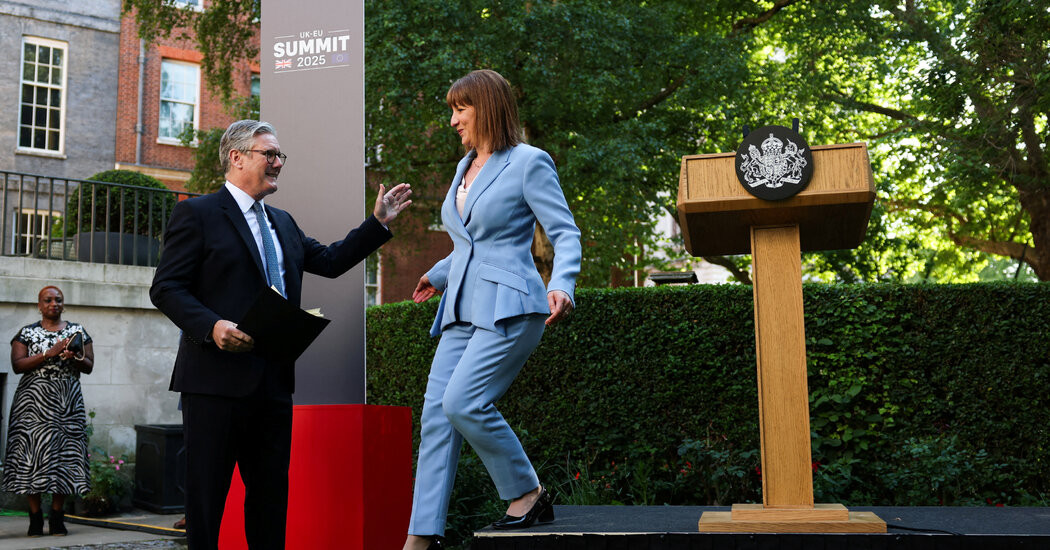

The Labour Party is starting its second year in control of the government with difficult choices over whether to curb spending or raise taxes.
Britain’s Labour Party ended a year in power in misery last week, after Prime Minister Keir Starmer made a U-turn on plans to cut welfare spending and Rachel Reeves, the chancellor of the Exchequer, was caught looking teary-eyed in Parliament.
The second year is already shaping up to be just as challenging.
On Tuesday, the Office for Budget Responsibility, an independent watchdog, said Britain’s public finances were in a “vulnerable position” after a series of major global economic shocks.
Those include President Trump’s volatile trade policies as well as rising geopolitical conflict, which is increasing pressure on European governments to divert more of their budgets to military spending.
Amid this instability, the British government is on a collision course with self-imposed limits on debt and deficits. Mr. Starmer and Ms. Reeves might have to address this by instituting policies that are likely to be unpopular among the public, or face the wrath of investors who are on edge about the government’s commitment to fiscal discipline.
Although some of the challenges were created by the previous government, like a big tax cut for workers, Labour Party officials have compounded the problem by making ambitious promises to bolster public services, ensure Britain has the fastest-growing economy in the developed world and keep certain taxes steady.
“It’s a bad hand played in a mediocre fashion,” said Ben Zaranko, an economist at the Institute for Fiscal Studies. “And it’s just a difficult time to be a finance minister.”



